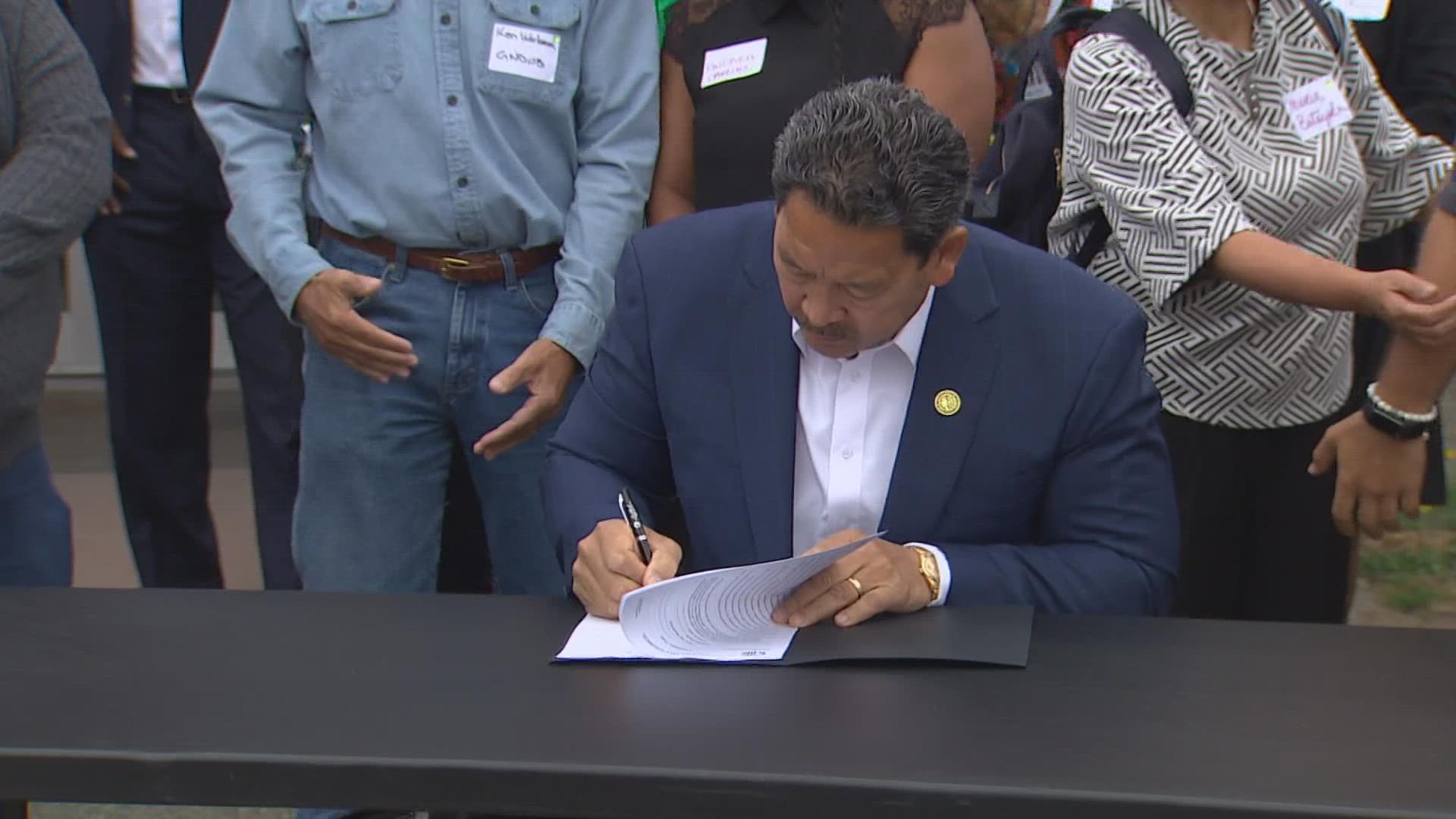SEATTLE — Mayor Bruce Harrell signed the Green New Deal legislation into law Thursday morning, which includes a series of projects that aim to reduce greenhouse gas emissions in Seattle and build the communities' resilience against the effects of climate change.
The Green New Deal legislation includes nearly $6.5 million earmarked for several climate projects throughout the city.
"We know the impacts of climate change," Harrell said. "They are already falling on our city. As we fight for tomorrow, we have to think about the impacts today. Therein lies the challenge, but it’s a challenge we are up for."
The new law represents a portion of the jumpstart payroll expense's investment toward fighting climate change. The payroll expense, which passed in 2020, has already committed $14.5 million this year, nearly $20 million in 2023 and over $20 million in 2024 to further reduce greenhouse emissions.
Here are the key projects set to begin under the city's Green New Deal:
- $2.4 million to identify and develop resilience hubs in Seattle: Harrell said "Resilience Hubs" help ensure communities are supported in preparing for, responding to and recovering from climate change-related emergencies such as extreme heat events and wildfire smoke. The city is working to address community needs at nexus of resilience, emergency management and response, climate change mitigation, and social equity. Mayor Harrell has also proposed $2 million in his Parks District budget proposal toward the Resilience Hub effort.
- $2.3 million to support efforts to get all city-owned buildings off fossil fuels by 2035. The City of Seattle owns 650 buildings, including 27 public libraries which are increasingly on the front lines of community care during climate emergencies. Harrell said the money will provide heating, cooling and clean air at the NE and SW Library branches to support communities during times of climate crisis.
- $2 million to increase the number of city-funded affordable housing projects. Harrell said investing in multi-family affordable housing electrification will lead to fewer new fossil fuel systems "that will lock newly created affordable housing – and its residents — into decades of climate pollution."
- $300,000 to support climate data and Community Health Indicator project. Part of the Green New Deal's goal is to collect data to track the climate impact on transportation, community health and other programs. Officials said these metrics will allow the city to hone in on advancing climate justice and lowering greenhouse gas impacts.
- $100,00 for community engagement to inform climate elements of the One Seattle Comprehensive Plan update. This investment sets aside funds to support community engagement that will inform climate components incorporated into the One Seattle Comprehensive Plan – an effort fundamental to shaping land use, transportation, and infrastructure investments over the next 20 years.
Councilmember Teresa Mosqueda said one of her main goals is to protect frontline communities and workers from the negative effects of climate change. These communities are often closest to freeways, air pollution and noise pollution, she said. Frontline workers have the highest exposure to toxic pollutants as well.
Patience Malaba of the Housing Development Consortium said communities of color and low-income are adversely affected by the planet's warming.
“Most climate pollution and environmental harm happen where BIPOC and low-income individuals reside," Malaba said. “It’s critical that Seattle’s climate investments are designed to make our buildings safe, healthy, and resilient for our communities and that they prioritize job training and career development for those who have been most impacted by the extraction and burning of fossil fuels.”
Mosqueda said it's important to act locally even though climate change affects the entire world.
“This is about the right now," Mosqueda said. "This is about having a climate where we can breathe in and live in right now and making sure Seattle is more livable right now. The global crisis we have seen might feel too big to tackle, but we can and we must act locally."

